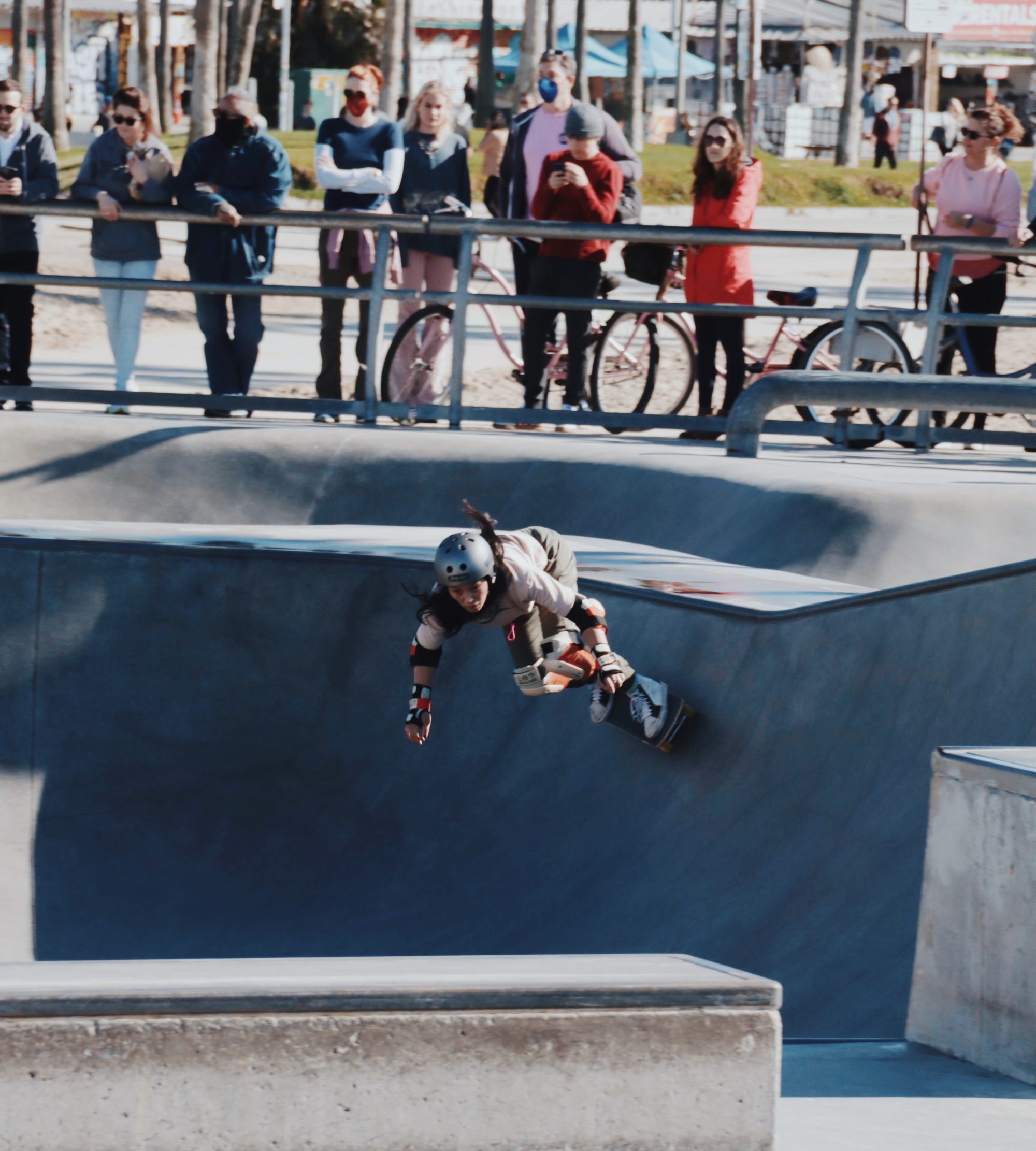Denise Biziaev wanted to skateboard ever since her younger brother turned pro at 10 years old.
“He came home after skateboarding with his little crew and said, ‘I think I’m sponsored!’ But he didn’t know what that meant,” Biziaev laughs (he was eventually sponsored, but never went pro). “But I just recall him coming home so excited. And I really didn’t understand why, per se, but the more I saw him skateboarding with his buddies, the more I was like, Wow, this is really cool.” So she did what any older sibling would do: She stole his board — “Once in a while!” — and started skating. “I really developed a liking for it, I found it really enjoyable. But I also found it really freeing.”
Sadly, her freedom was short lived. Once she identified as a skateboarder at school, she was “bullied really bad,” but not as much by the boy boarders as you might expect. “Certainly some guys would pipe in, but it was mostly the girls in the grade above me. They would actually swarm, in upwards of groups of 10, saying, ‘If you can skateboard, prove it — do an ollie.’ And I was like, ‘I don’t have to prove anything to you!’”
In addition to being Asian, Biziaev explains, it wasn’t common to see girls skateboarding, so by the time she was 14, she became a “closet skateboarder,” skating quietly on her own. By the time she was 16, she quit, her love of boarding having been overwhelmed by loneliness and hurt.
Then, at age 37, the pandemic started. Despite being out of practice, and still harbouring horrible memories, she steadied her palpitating heart and rolled back into a skatepark. “The bullying didn’t have the same grip on me at 37, but there would be remnants. So that’s one layer. The second layer is that, yes, I’m older. But then on top of that, it was, I’m a woman at a skate park, who is older, who is coloured. So it was almost like peeling layers of an onion, just to be able to get to that point where I could step foot at the skate park.”
